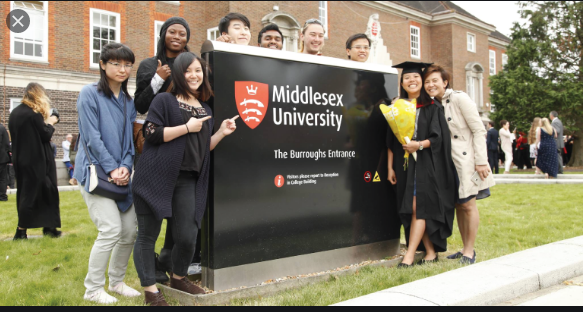LLM Employment Law
Overview
A glance at any newspaper or online news feed soon highlights great strength of feeling surrounding employment law. Pay equality, minimum wage, unfair dismissal, contract and agency workers, zero hours contracts and workers' rights are regular flash-points, especially in the political sphere. Government and non-government organisations, as well as private businesses, need skilled individuals who show a deep understanding of employment law and the complex issues it raises.
Why study LLM/PGDip/PGCert Employment Law at Middlesex University?
The programme enables students to specialise in subjects related to employment law, equipping them with comprehensive knowledge of the legal processes governing employment relationships and statutory rights in the UK, through the systematic and critical understanding of legal frameworks regulating employment contracts, recruitment, dismissal and discrimination in the work place.
You will deepen and broaden your knowledge of law as an academic subject; acquiring a systematic understanding of legal processes, methods and concepts, of the social and political context in which legal processes take place and of appropriate theoretical conceptions of law.
By maximising your academic potential and refining your problem-solving skills in a transnational context through the acquisition of systematic and critical understanding of complex legal, economic, cultural, ethical and political issues informing employment relationships and anti-discrimination regulations in the United Kingdom and Europe you will enhance your professional development and horizons.
The research and writing skills you gain will be transferable to a variety of professional sectors, including the legal profession, policymaking, corporate sector, governmental bodies or academia.
Middlesex University School of Law is home to a number of internationally respected experts in the field of employment law, including Dr Erica Howard, who is a widely published expert in equality and discrimination law and Professor Dave Lewis, the Convener of the International Whistleblowing Research Network.
Professor Lewis also heads up the Whistleblowing Research Unit at Middlesex, which carries out groundbreaking research in this field such as the 2015 Francis Review of whistleblowing in the NHS.
Course highlights
- This programme is built on staff experience of teaching employment law at postgraduate level for more than 40 years
- The subject is taught in a very practical way which emphasises that employment law provides a framework for human resources management and thus needs to offer solutions that are acceptable to employers, workers and their representatives
- Learn from tutors who are leading groundbreaking research projects affecting policy changes in major organisations including the NHS.
Intakes
- Sep
Application Processing Time in Days: 30
Application Process
Minimum English Language Requirements
| English Level Description | IELTS (1.0 -9.0) | TOEFL IBT (0-120) | TOEFL CBT (0-300) | PTE (10-90) | |
|---|---|---|---|---|---|
| Expert | 9 | 120 | 297-300 | 86-90 | |
| Very Good | 8.5 | 115-119 | 280-293 | 83-86 | |
| Very Good | 8 | 110-114 | 270-280 | 79-83 | |
| Good | 7.5 | 102-109 | 253-267 | 73-79 | |
| Good | 7 | 94-101 | 240-253 | 65-73 | |
| Competent | 6.5 | 79-93 | 213-233 | 58-65 | |
| Competent | 6 | 60-78 | 170-210 | 50-58 | |
| Modest | 5.5 | 46-59 | 133-210 | 43-50 | |
| Modest | 5 | 35-45 | 107-133 | 36-43 | |
| Limited | 4 | 32-34 | 97-103 | 30-36 | |
| Extremely Limited | < 4 | < 31 | < 93 | < 30 |
Admission Requirement / Eligibility Criteria
Qualifications
We accept the equivalent of the below qualifications from a recognised overseas qualification.
- The University's standard entry requirement consists of a Law degree at 2:2 or Graduate Diploma in Law/CPE
- Graduates in related disciplines, with law minors or with relevant professional experience or qualifications may be admitted subject to the programme leader's discretion
To find out more about the qualifications we accept from your country please visit the relevant Support in your country page.
If you are unsure about the suitability of your qualifications or would like help with your application, please contact your nearest Regional office for support.
Visas and immigration
You will not need a visa to study in the UK if you are a citizen of the European Union, Iceland, Liechtenstein, Norway or Switzerland. If you are a national of any other country you may need a visa to study in the UK. Please see our Visas and immigration page for further information.
International students who require a Tier 4 Student Visa to progress on a course at Middlesex University must apply for study on a full-time basis. However, this course is offered part-time so you are eligible to apply on a part-time basis.
- Course Type: Full Time
- Course Level: Masters/PG Degree
- Duration: 01 Year
-
Total Tuition Fee:
14000 GBP
Annual Cost of Living: 12006 GBP
Application Fee: N/A
Similar Programs
- LLM Human Rights Law with Integrated Placement at Middlesex University London
- LLM International Business Law at Middlesex University London
- LLM International Minority Rights Law at Middlesex University London
- LLM/PGDip/PGCert Law (General) at Middlesex University London
- Occupational Health and Safety and Environmental Management MSc/PGDip at Middlesex University London
- Occupational Health, Safety and Wellbeing Management MSc/PGDip at Middlesex University London

